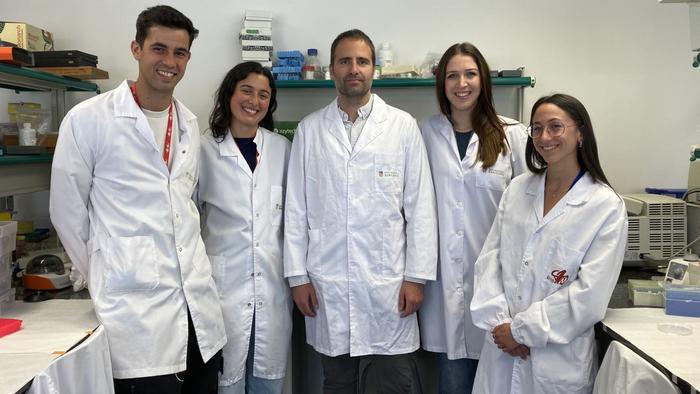Vaccinia viruses are therapeutic tools with different biomedical applications depending on the susceptibility characteristics. For example, the strain called MVA (modified vaccinia Ankara), which is unable to replicate in mammalian cells, triggers a potent immune system response and is used to develop vaccines against COVID-19 or AIDS. In contrast, other strains such as Western Reserve (WR) or Copenhagen (Cop), which replicate efficiently in tumour cells, are used to develop cancer treatments. For this reason, they are called immune-oncolytic viruses and are the basis of viral immunotherapy.

Credit: UNIVERSITY OF BARCELONA (UB) – BELLVITGE BIOMEDICAL RESEARCH INSTITUTE (IDIBELL)
Vaccinia viruses are therapeutic tools with different biomedical applications depending on the susceptibility characteristics. For example, the strain called MVA (modified vaccinia Ankara), which is unable to replicate in mammalian cells, triggers a potent immune system response and is used to develop vaccines against COVID-19 or AIDS. In contrast, other strains such as Western Reserve (WR) or Copenhagen (Cop), which replicate efficiently in tumour cells, are used to develop cancer treatments. For this reason, they are called immune-oncolytic viruses and are the basis of viral immunotherapy.
However, these viral strains have reduced immunogenicity, which makes them less effective in activating patients’ immune responses against tumours.
Now, a study led by the University of Barcelona, the Bellvitge Biomedical Research Institute (IBIDELL) and the University of Munich (Germany) has developed a new strain of vaccinia virus, which can replicate in tumour cells while maintaining increased immunogenicity. Specifically, it can to induce so-called immunogenic cell death in tumour cells.
The study, published in the journal Molecular Therapy, has been carried out with the support of the Spanish Association Against Cancer (AECC) and the collaboration of the State Research Agency (AEI). The new therapeutic tool, which has been tested in a wide variety of mouse models, has been shown to have reduced toxicity and a high capacity and efficiency to activate immune responses against tumours. The virus is also effective in different cancer treatments, such as melanoma, colon and kidney cancer.
“In addition, we achieved the total disappearance of tumours in a very significant way when we administered the virus repeatedly”, notes expert Juan J. Rojas, first author of the study and principal investigator of the Immunity, Inflammation and Cancer group of the Faculty of Medicine and Health Sciences of the UB and IBIDELL.
The discovery of this new viral strain represents a significant advance in viral immunotherapy research and demonstrates its therapeutic potential for treating cancer patients.
Journal
Molecular Therapy
Method of Research
Experimental study
Subject of Research
Cells
Article Title
A new MVA ancestor-derived oncolytic vaccinia virus induces immunogenic tumor cell death and robust antitumor immune responses
Article Publication Date
10-May-2024



